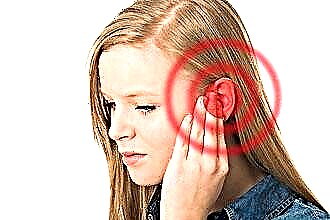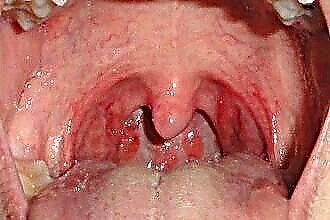What is the name of an ear specialist? Doctors who specialize in the diagnosis and treatment of traumatic and infectious pathologies in the head area (ear, throat, nose) are called otolaryngologists or ENT doctors. Such specialists have knowledge in the field of neurology, pharmacology, virology, physiology and anomalies of all anatomical structures in the head region. With the development of ear diseases and inflammation in the upper respiratory tract, you should seek the help of an ENT doctor.
Otolaryngologists perform simple operations to remove ear plugs, abscesses, adenoids and other benign neoplasms. At the same time, an ear doctor does not specialize in hearing aids, plastic surgery and solving hearing problems. Replacement of the auditory ossicles, plastic ear membrane and elimination of hearing loss are within the competence of specialists of a narrower profile.
What does ENT treat?

The otolaryngologist is one of the most demanded specialists due to the incidence of ear and nasopharyngeal diseases. With the help of special equipment, the ENT doctor conducts diagnostics, during which he determines the type of pathology and the subsequent treatment regimen. The list of the main diseases with which patients can consult a specialist includes:
- otitis;
- eustacheitis;
- hearing loss;
- diseases of the nose;
- throat diseases;
- anomalies of the ENT organs;
- dizziness.
ENT doctors say that by pathological changes in the tissues of the middle and inner ear, it is possible with a 70% probability to determine which organs are involved in catarrhal processes. According to the condition of the parotid lymph nodes and the mucous membrane of the ear cavity, it is possible to determine the disorders of specific organs and, accordingly, the appropriate course of treatment for the disease.
Specialization of an ENT doctor
The ear doctor has knowledge of the medical fields of therapists, surgeons and neurologists. A multidisciplinary specialist treats pathologies related to the following 7 areas of expertise:
- laryngology - one of the main sections of otolaryngology, which studies physiology, pathological changes in the laryngeal mucosa and problems with swallowing function;
- rhinology - a branch of medicine dealing with the study of the structural features of the nasopharynx and the elimination of pathological changes in the nasal mucosa and paranasal sinuses;
- otology is a field of knowledge that deals with the study of nervous diseases associated with dysfunction of the vestibular apparatus;
- allergology is a branch of medicine that deals with the mechanisms of the occurrence of allergic reactions in the mucous membranes of the ENT organs and the main methods of their elimination;
- surgery is a field of medicine specializing in the study of ENT pathologies that can be treated with surgery;
- pediatric otolaryngology - a section of otolaryngology, which examines the causes and mechanisms of congenital and acquired disorders in the organs of hearing, nasopharynx and larynx;
- ENT oncology is a field of knowledge that studies the mechanisms and basic patterns of the occurrence of neoplasms in the upper respiratory tract and ear cavities.
When to see an ENT doctor?
If your ear hurts, which doctor should you go to?
In the presence of specific pathologies that are amenable exclusively to surgical treatment with the use of complex sanitizing and abdominal operations, you should seek the help of an otosurgeon.
If you experience discomfort in the organ of hearing, the first step is to seek help from an ENT doctor. After a visual examination and an otoscopy, a specialist will be able to determine the type of pathology and features of conservative or surgical treatment.
Direct indications for visiting a specialist are:
- hearing impairment;
 ear pain;
ear pain;- discharge from the ear canal;
- nasal congestion;
- headache;
- dizziness;
- enlargement of the parotid lymph nodes.
It is otolaryngologists who determine the optimal course of complex treatment of ear diseases, which may include physiotherapeutic procedures, drug therapy or sanitizing operations. They also carry out the treatment of mucous membranes with antiseptic agents and the removal of sulfur plugs from the auditory canal.
Equipment in the otolaryngologist's office
Diagnosis of ear diseases and their outpatient treatment takes place in the ENT doctor's office. It contains more than 10 special devices, with the help of which the type of pathology, the degree of damage to the ENT organs is determined, and the necessary therapeutic measures are carried out. The list of cabinet special equipment includes:
- tone audiometer - electro-acoustic equipment, with the help of which hearing acuity is determined;
- endoscope - an optical device designed for visual inspection of the nasopharynx, external auditory canal, upper digestive tract, etc.;
- fibrolaryngoscope - an endoscopic device that is used to visually assess the degree of morphological changes in the mucous epithelium;
- negatoscope - medical special equipment designed for viewing and analyzing radiological images of ENT organs;
- medical tuning fork - a diagnostic device with which you can determine the degree of auditory sensitivity;
- diagnostic microscope - an optical device used for a more detailed examination of the affected tissues of the hearing organ;
- ENT instrumentation - metal instruments used to take tissue for biopsy, remove sulfur plugs and foreign objects from the external auditory canal.
Only after performing fluoroscopy, audiometry and endoscopic analysis can a specialist be sure to determine the type of disease and the cause of its occurrence.
Narrow-profile specialists
Otolaryngology until recently was a narrow medical specialization. But over the past 10-15 years, more narrower subspecialties, namely:
narrower subspecialties, namely:
- phoniatrics;
- otoneurology;
- rhinosurgery;
- audiology;
- otosurgery.
Sometimes it is difficult for patients to determine the required subspecialty of a doctor who can help resolve a specific issue. Which doctor treats ears? There are three types of doctors who specialize in the treatment of ear diseases:
- otosurgeon (otiatrist) - a doctor specializing in surgical intervention in the field of ear surgery;
- otoneurologist - a specialist who deals with the elimination of problems at the junction of neuropathology and otolaryngology;
- audiologist - a doctor who is responsible for resolving hearing problems.
There is an even narrower specialization in otolaryngology - a military ENT doctor. The competence of the specialist includes the elimination of traumas of the ENT organs received during military operations. A military doctor specializes in carrying out the most complex operations on external wounds of the organ of hearing. He also deals with the issues of restoring the performance of the auditory analyzer after receiving injuries caused by "supersonic" arising from shelling from anti-aircraft guns.

 ear pain;
ear pain;

